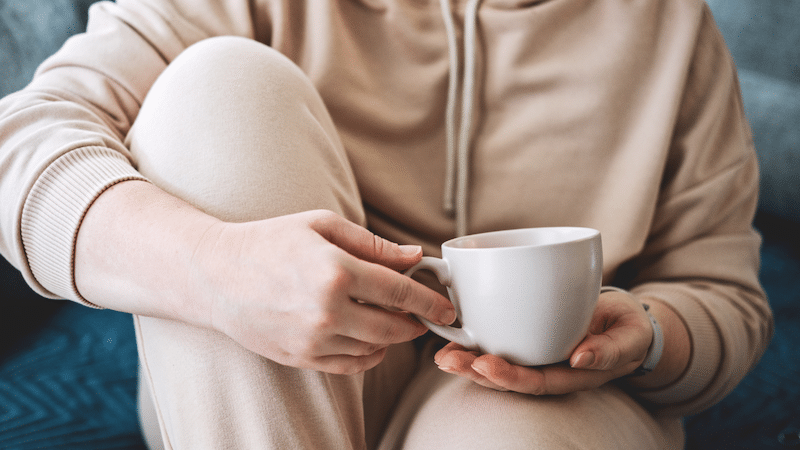Types of Self-Care

In recent years, self-care has become a buzzword, often reduced to concepts such as bubble baths and face masks. While these activities can certainly be part of one’s self-care routine, stopping our understanding of self-care here is limiting.
What is Self-Care?
Self-care is the act of taking steps to improve, preserve, and maintain one’s well being. Humans require connection, security, nourishment, stimulation, and rest. Self-care allows people to fulfill those needs by creating routines that build a compassionate and caring relationship with oneself. This can look different for everyone. There are many different types of self-care that help people fulfill their needs, ranging from basic life maintenance tasks, such as taking one’s medication, to special treats, such as a nice meal.
Proactive vs. Reactive Self-care
Self-care can be proactive or reactive. Proactive self-care refers to steps people take to maintain their well-being and prevent burnout, emotional dysregulation, and other negative outcomes. On the other hand, reactive self-care refers to the steps people take to care for themselves once they are already experiencing burnout, emotional dysregulation, or in response to a negative life event. Both forms of self-care are valuable, but self-care is most effective when people take a proactive approach. However, there are certain life circumstances that cause people to need additional, reactive self-care that they cannot necessarily be proactive about, such as a sudden death or natural disaster.
Physical Self-Care
Physical self-care refers to the steps people take to improve, preserve, and/or maintain their physical health. Maslow’s hierarchy of needs is the theory that human needs can essentially be boiled down to five basic categories, placing those needs on a hierarchy. It suggests that it can be difficult to fulfill some needs when others aren’t met. For example, it is difficult to achieve career goals if you are chronically sleep deprived. Physical needs are often prioritized, or seen as more important, than other needs. While maintaining physical health is extremely important, so are other forms of self-care.
Physical Self-Care Can Look Like:
- Scheduling and attending annual check-ups
- Maintaining a consistent sleep schedule
- Taking medications on-time
- Eating a balanced diet
- Stretching before a workout
- Scheduling a doctor’s appointment after an injury or development of new symptoms
- Taking a nap after a restless night
- Drinking electrolytes after a workout
Emotional Self-Care
Emotional self-care refers to the steps people take to improve, preserve, and/or maintain their emotional well-being. Far too often, attending to one’s emotional needs is seen as unproductive, elective, and less important than physical health. In many places, taking a sick day when someone feels emotionally unwell is not seen as a valid reason to be sick or take time off of work. Emotional needs are extremely important and deserve attention. Those who are struggling with their emotional well-being may have a difficult time processing information, focusing, having clear thoughts, managing stress, and other critical activities that rely on a stable emotional state.
Emotional Self-Care Can Look Like:
- Going to therapy
- Taking medications as prescribed
- Journaling
- Talking to a friend
- Creating art
- Emotional regulation skills
Mental Self-Care
Mental self-care refers to the steps people take to improve, preserve, and/or maintain their psychological and cognitive functioning. Learning new things and engaging in higher levels of thinking both enriches our lives and improves brain functionality. Intellectually stimulating activities can boost confidence, maintain knowledge, and expand our skill sets, allowing us to continue to evolve as individuals.
Mental Self-Care Can Look Like:
- Learning a new skill
- Solving a puzzle
- Reading
- Attending workshops
- Studying a new language
Financial Self-Care
Financial self-care refers to the steps people take to improve, preserve, and/or maintain their financial well-being. Finances can be a major source of stress for many people. Unfortunately, money is a human need, but obtaining the amount of money one needs to meet their other needs is not always possible. Managing money helps people feel more in control of their lives and can help them fulfill other needs and achieve goals. Financial self-care can help people improve their relationship with money. It’s important to remember that there is only so much control people have over their financial situation. Taking some of these steps is not always possible and is often a privilege.
Financial Self-Care Can Look Like:
- Setting a budget
- Setting financial goals
- Depositing into savings
- Not touching savings
- Utilizing social resources
- Thrifting, bartering, or trading
- Staying informed on the economy
- Couponing and buying what is on sale
Environmental Self-Care
Environmental self-care refers to the steps people take to improve, preserve, and/or maintain the well-being of the environment around them. The space around us can have a significant impact on our mental, emotional, and physical well-being. Taking action to curate an environment where we feel safe, focused, and comfortable rather than feeling distracted, overwhelmed, and on-edge is incredibly important. Due to life circumstances, many people have limited control over their environment, such as those with financial constraints that dictate where they live or children who cannot make decisions themselves regarding their home life. Environmental self-care is really about making your environment as good as possible.
Environmental Self-Care Can Look Like:
- Cleaning
- Decluttering
- Playing music
- Making your bed
- Buying or making decorations
- Installing security cameras
Social/Relational Self-Care
Social/Relational self-care refers to the steps people take to improve, preserve, and/or maintain the well-being of their relationships. Relationships include intimate partners, family, friends, co-workers, and neighbors. Close relationships can significantly improve quality of life and mental health. Those who are healing from trauma need support from people they know. However, relationships can also be the source of significant stress. Everyone differs in the type and amount of social interactions they need to feel fulfilled, and part of social self-care is identifying how relationships with others can improve our lives.
Social/Relational Self-Care Can Look Like:
- Making plans
- Communicating, even when it is difficult
- Calling a family member
- Attending family or couple’s therapy
- Saying “No” to plans if needed
- Participate in social community events
- Connect with others with similar interests, in-person and online
- Learning the love languages of those you love
Recreational Self-Care
Recreational self-care refers to the steps people take to improve, preserve, and/or maintain the activities that bring them joy. Joy is a valuable and important human need that enriches life. This type of self-care involves engaging in hobbies, taking vacations, and even just giving yourself time to kick back and watch a TV show. Making time for recreational activities helps to relieve stress, making it easier to complete other, less fun, activities.
Recreational Self-Care Can Look Like:
- Making arts and crafts
- Playing video games
- Watching a movie
- Going for a hike
- Playing sports
- Reading
Spiritual Self-Care
Spiritual self-care refers to the steps people take to improve, preserve, and/or maintain the well-being of their inner self. While it sometimes does, this type of self-care does not have to focus on religion. Spiritual self-care is about reconnecting with oneself in a way that provides a deeper sense of meaning and purpose.
Spiritual Self-Care Can Look Like:
- Meditation
- Yoga
- Reading religious text
- Reflecting on core values
- Attending religious services
- Mindfulness
- Gratitude
Professional/Academic Self-Care
Professional/Academic self-care refers to the steps people take to improve, preserve, and/or maintain a work-life balance. Work and school can be significant sources of stress for people. This type of self-care involves keeping up with work or school tasks, setting boundaries, and taking initiative to prevent burnout. By doing so, these obligations become more enjoyable and less daunting, thus improving quality of life.
Professional/Academic self-care can look like:
- Responding to emails
- Setting work boundaries
- Utilizing PTO and sick days
- Keeping a calendar or planner
- Tutoring or study groups
- Taking breaks
- Prioritizing tasks
There are many ways to engage in self-care, and what is self-care for one person may not be what self-care looks like for someone else. Or, what is self-care for someone in one moment may not be self care in a different context.
Ultimately, self-care is an important part of being human, but it is especially important for those who are experiencing mental health issues, such as healing from trauma. It’s key that trauma survivors check-in with themselves periodically to ensure they are meeting their needs, and if they aren’t, taking action to meet those needs. Self-care is best practiced as proactive, not reactive. When beginning to implement self-care into one’s routine, it can be difficult to determine if and how they need to make changes, but there are often signs that someone is in need of self-care. We encourage those looking to integrate more self-care into their lives to seek the advice of a mental health professional.



